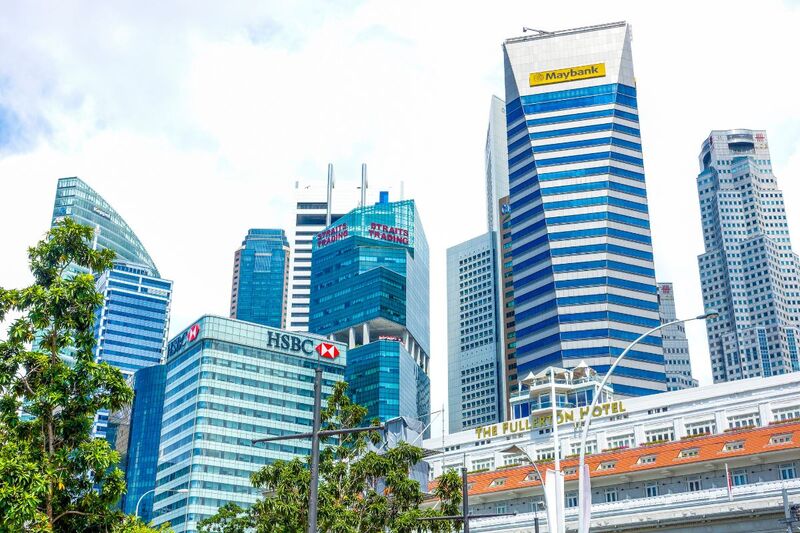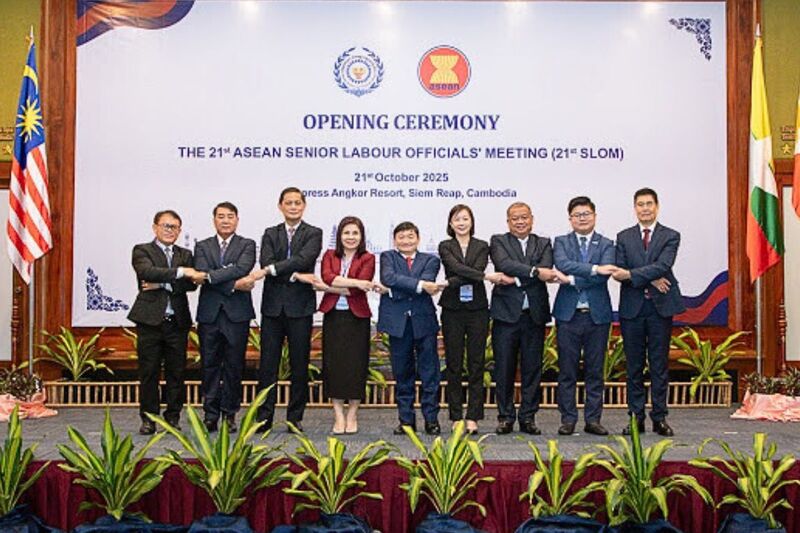The World’s Most Powerful Passport: What It Really Means for Workers and Employers in Singapore
In a world where borders matter more than ever, holding the "most powerful passport" isn't just a matter of pride—it’s a symbol of global access, trust, and opportunity. And once again in 2025, Singapore has claimed the top spot, with its passport granting visa-free or visa-on-arrival access to a staggering 195 destinations out of 227 worldwide.
But beyond the headlines and patriotic cheers, what does this mean for Singapore’s workforce and employers? Why should it matter to HR professionals, business leaders, and even fresh grads planning their next big move?
Let’s break it down.
Singapore's Passport Power: More Than Just a Travel Perk
According to the 2025 Henley Passport Index, Singapore ties with Japan in first place, giving its citizens the widest global mobility among all nations. This isn’t just good news for wanderlust-filled travellers—it’s a strategic advantage for companies operating in an increasingly globalised economy.
- 195 countries visa-free or visa-on-arrival
- Tied 1st globally in the Henley Passport Index 2025
- Surpasses global mobility access of the U.S. (188), UK (192), and most of Europe
This consistent top ranking reflects Singapore’s strong diplomatic ties, low corruption index, and trusted governance.
Why It Matters to Workers in Singapore
1. Global Career Flexibility
Singaporean professionals have the freedom to explore job markets around the world, whether it’s a tech role in Berlin, a finance opportunity in Dubai, or a leadership position in Tokyo. This opens the door to gaining international experience without complicated visa barriers.
2. Remote Work Beyond Borders
As hybrid and remote work models evolve, more Singaporeans are working remotely while travelling. Holding a powerful passport allows employees to take on remote roles from anywhere, expanding earning potential and exposure.
3. Professional Upskilling Opportunities
Attending global conferences, short-term executive programmes, or overseas training is much easier. Singaporeans can pursue education and upskilling abroad with fewer administrative hurdles.
Why It Matters to Employers in Singapore
1. Easier Global Deployment
Employers looking to send staff abroad for training, business development, or secondments benefit greatly. No need to waste weeks battling red tape when your staff can fly out the next day.
2. Attractive Talent Proposition
Global mobility is a magnet for high-potential local talent. Workers in Singapore can confidently pursue jobs that might take them overseas—knowing their passport gives them an edge. That’s a compelling benefit to attract ambitious professionals.
3. Competitive Regional Hiring Strategy
With ASEAN markets evolving quickly, Singapore firms can send teams to Indonesia, Vietnam, Malaysia or Thailand without visa roadblocks—accelerating business expansion and talent mobility.
Real-World Impact: Global Mindset, Local Growth
A globally mobile workforce fuels innovation, diversity, and market responsiveness. Employees who travel for work, conferences or overseas postings bring back cross-cultural insights, new networks, and regional acumen.
In fact, LinkedIn’s 2024 Workforce Insights report showed that professionals with overseas stints were 34% more likely to be promoted within two years compared to those who had only worked locally.
This passport privilege supports Singapore’s positioning as a global business hub, allowing it to remain competitive amidst tech revolutions, regional shifts, and talent wars.
Challenges Still Remain
Of course, holding the best passport doesn’t mean everyone can afford to travel. Rising airfares, cost of living pressures, and job insecurities still hinder international exposure for some segments of the workforce.
Employers can bridge the gap by:
- Subsidising overseas training or exchanges
- Encouraging remote work sabbaticals
- Building international exposure into leadership pipelines
Final Thought: It’s Not Just a Document. It’s a Door.
The Singapore passport isn’t just about luxury travel or bragging rights—it’s a powerful enabler of career growth, business expansion, and regional leadership.
Whether you're an HR director planning your next overseas conference, or a young graduate dreaming of Tokyo, Berlin or New York, one thing is clear:
You’re holding the key to the world.
FAQ: What You Need to Know
Q1: Why is Singapore’s passport ranked #1?
The ranking is based on how many countries allow visa-free or visa-on-arrival access. Singapore currently has access to 195 destinations, thanks to strong international relations and low-risk profile.
Q2: How does this benefit workers?
It opens up global career opportunities, simplifies travel for overseas jobs or training, and enables flexible work arrangements across borders.
Q3: What about employers—how can they make use of this?
Faster overseas deployments, regional market entries, and leadership development are all easier with mobile employees. It’s a strategic edge for companies based in Singapore.
Q4: Does this apply to PRs or Work Pass holders?
No, passport rankings apply only to citizens. PRs and foreign workers may have different visa access depending on their home country passport.
Q5: Are there any limitations despite the powerful passport?
Yes—financial ability, job restrictions, or bilateral tensions with certain countries may still pose travel or work barriers.
Ready to Go Global with Reeracoen?
Looking to hire globally-minded professionals or take your next career leap abroad?
At Reeracoen, we help workers and companies connect across borders, industries, and opportunities.
Disclaimer:
The information provided in our blog articles is intended for general informational purposes only. It is not a substitute for professional advice and should not be relied upon as such.
While we strive to provide accurate and up-to-date information, the ever-evolving nature of certain topics may result in content becoming outdated or inaccurate over time. Therefore, we recommend consulting with qualified professionals or experts in the respective fields for specific advice or guidance. Any actions taken based on the information contained in our blog articles are solely at the reader's discretion and risk. We do not assume any responsibility or liability for any loss, damage, or adverse consequences incurred as a result of such actions.
We may occasionally provide links to external websites or resources for further information or reference. These links are provided for convenience and do not imply endorsement or responsibility for the content or accuracy of these external sources. Our blog articles may also include personal opinions, views, or interpretations of the authors, which do not necessarily reflect the views of our organisation as a whole. We encourage readers to verify the accuracy and relevance of information presented in our blog articles and to seek professional advice when needed. Your use of this website and its content constitutes acceptance of this disclaimer.
Reference Links:
- Henley Passport Index 2025: https://www.henleyglobal.com/passport-index
- LinkedIn Workforce Insights 2024: https://www.linkedin.com/pulse/linkedin-workforce-report-2024
- Ministry of Foreign Affairs Singapore – Travel Resources: https://www.mfa.gov.sg/
- World Bank Global Mobility Data: https://www.worldbank.org/en/topic/migration
- The Straits Times – Singapore passport ranked most powerful again in 2025: https://www.straitstimes.com/singapore/singapore-passport-ranked-most-powerful-again-2025



